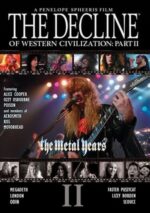The Quiet Rebellion: Exploring Anti-Social Cinema
There's something inherently fascinating about characters who actively reject societal norms – not necessarily villains, but individuals operating on their own terms, often with unsettling consequences. We’re drawn to them, repelled by them, and ultimately, compelled to understand why they choose a path of isolation or outright antagonism. It’s more than just being “loners”; it's an active rejection of connection, a deliberate carving out of space outside the accepted order. And cinema has always been a fertile ground for exploring this fascinating, sometimes disturbing, territory.
Think about Dangerous Encounters of the First Kind. On the surface, it’s a crime story, but at its core, it's about three men who find solace – and then disaster – in shared apathy and petty rebellion. They aren't driven by grand ambition; they just…don’t care enough to conform. Pearl, the manipulative young girl, isn’t simply evil; she exploits their anti-social tendencies, recognizing that a lack of consequence breeds opportunity. It’s a bleak commentary on how societal disengagement can be weaponized.
This theme resonates across genres. Consider The Decline of Western Civilization Part II: The Metal Years. While ostensibly a documentary about the excesses of 1980s glam metal, it also captures a generation rejecting mainstream values through outrageous fashion and unapologetic hedonism. It wasn’t just about the music; it was a visual and sonic middle finger to conformity. I remember seeing footage from that era as a kid – the sheer audacity of it all! It felt like a rebellion against everything “safe” and predictable.
Then you have films like Red, White & Blue, which delves into the psychological fallout of trauma leading to isolation. The interrogator’s descent isn't just about mental illness; it's a consequence of being pushed outside societal boundaries, forced to confront the darkest aspects of humanity without proper support or reintegration. It highlights how prolonged anti-social behavior can be both a symptom and a cause of profound suffering.
Even lighter fare like Ghost Town plays with this idea. Bertram Pincus’s grumpiness isn't just a personality quirk; it's a shield against the world, a way to maintain control in a chaotic existence. His ability to see ghosts becomes both a curse and an unlikely catalyst for connection – forcing him to confront his own emotional barriers.
And finally, Hellbender offers a unique spin, blending metal music with witchcraft, exploring how generational trauma and isolation can manifest as both artistic expression and occult practice. The mother-daughter dynamic is particularly compelling; their shared passion becomes entangled with secrets that threaten to tear them apart.
Ultimately, films that explore anti-social behavior aren’t just about the characters themselves. They're reflections of our own anxieties about connection, belonging, and the ever-shifting boundaries of what it means to be a part of society. They challenge us to examine not only those who choose to stand apart but also the systems that push them there in the first place.
What films have you found that explore this theme? I’d love to hear your recommendations!
























